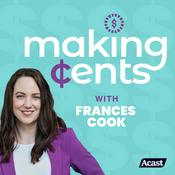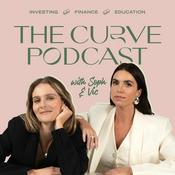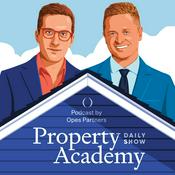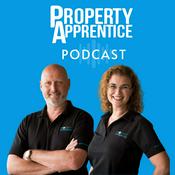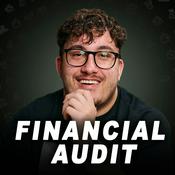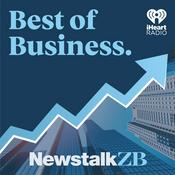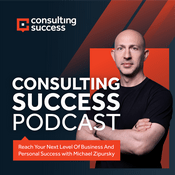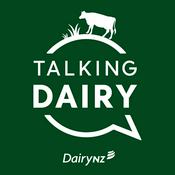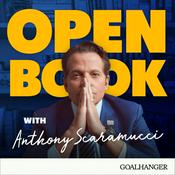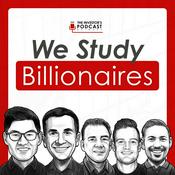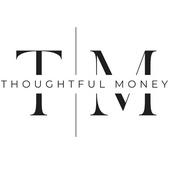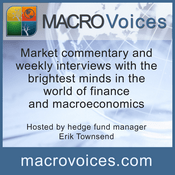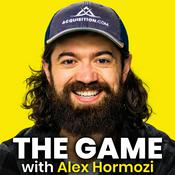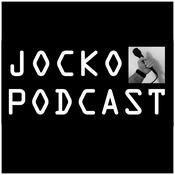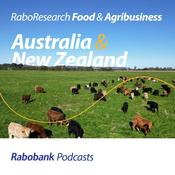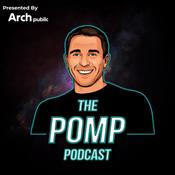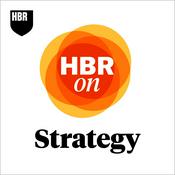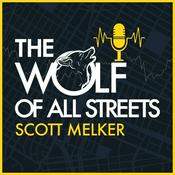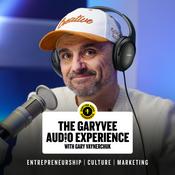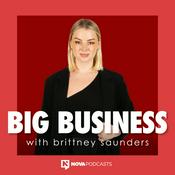40 episodes
- In this episode of the podcast we sit down with Claire Smith, Partner at SpringTide. She reflects on her journey from a biological engineering student at MIT to her current role in venture capital, and the key lessons she’s learned along the way. Claire explains SpringTide’s investment scope, introduces companies from her portfolio, and shares what drives her investment decisions. The conversation also explores the current landscape of TechBio and AI, including how to distinguish genuine innovation from hype, how pharma is realistically adopting AI, and differences in East Coast and West Coast perspectives on the technology.
Claire provides guidance for early-stage founders navigating today’s ever-changing environment. She discusses the importance of planning realistic timelines, how and when to launch a company, and what qualities investors are looking for. She advises on what makes a great pitch, arguing that the goal of the initial meeting is not to secure funding, but to earn a second conversation. Trust is built through preparation, authenticity, and intellectual honesty, never by faking it in biotech.
Books mentioned:
The Pyramid Principle by Barbara Minto
Why Genius Failed: The Rise and Fall of Long-Term Capital Management by Roger Lowenstein
Time Stamps:
0:01:20 Introduction to Claire’s journey from MIT biological engineering to SpringTide
0:05:44 There’s “no overnight successes” in biotech
0:06:47 Claire’s experience as a start up operator at Crestovo and the key lessons she learned
0:09:35 Explanation of the investment scope of Springtide
0:12:31 How Claire assesses risk when building an investment portfolio
0:14:47 Things to consider when evaluating technical founders
0:15:55 Introduction to Paterna Biosciences and their impact within the fertility space
0:19:27 Platforms vs assets in tough capital markets and why Springtide has a countercyclical platform focus
0:22:50 Meaning of “look boring today, but will be infrastructure tomorrow”
0:24:24 Advancements in Palantir‑style business models for pharma
0:28:42 What does the term “TechBio” means to Claire
0:30:39 How the pharma industry is currently leveraging AI
0:33:55 Markers of AI success to keep an eye out for
0:35:29 How to identify companies that are driving genuine AI innovation
0:37:50 Example of Niche Bio and how they’re generating data for machine learning
0:39:22 Differences in opinions between East Coast and West Coast investors on AI
0:42:16 Advice for companies navigating the current capital market
0:44:16 Why proactive buffer planning is critical when setting a timeline
0:45:36 Advice for early stage founders on how and when to launch their company
0:50:59 What sets a great pitch apart
0:55:00 Explanation of the Pyramid Principle by Barbara Minto
0:55:44 3 main points about SpringTide as an investment firm
0:58:28 Importance of forming authentic connections but don’t “fake it ‘til you make it”
1:01:22 Quick-fire questions - In this special panel episode recorded in Zurich, the founders of Apricot Bio, Michael Zering (CEO), Lucas Pelkmans (Scientific Founder), and Independent Professor Andreas Wicki from the University of Zurich explore the new field of functional precision oncology—an approach that goes beyond genomics to test how living cancer cells actually respond to treatment. The conversation covers the limits of genetic diagnostics, the promise of ex vivo drug testing, AI-driven decision-making, and how smarter trial design could transform cancer care. The panel also dives into Switzerland’s biotech ecosystem, venture capital realities, and what it takes to bring high-risk, high-impact science from the lab to the clinic.
00:00 – 03:30 | Introduction & Panel Setup
Recorded in Zurich, this special panel episode introduces functional precision oncology and why current diagnostic paradigms are reaching their limits.
03:30 – 12:00 | The Limits of Genomics in Cancer Care
Why genetic screening alone can’t capture tumor complexity, molecular heterogeneity, and real-world treatment response.
12:00 – 22:00 | What Is Functional Precision Oncology?
Testing patient-derived cancer cells ex vivo to understand drug response, cellular context, and therapeutic combinations.
22:00 – 32:00 | “The Google Maps of the Cell” Analogy
How contextual, real-time cellular data improves decision-making compared to static genetic snapshots.
32:00 – 43:00 | Clinical Trials Reimagined
Why traditional drug-centric trials struggle—and how diagnostic-led, patient-specific trials could change oncology research.
43:00 – 53:00 | AI, Data Science & Cellular Context
How machine learning models integrate phenotypic, spatial, and functional data to predict treatment response.
53:00 – 1:03:00 | Drug Combinations & Repurposing
Why single agents often fail—and how functional testing uncovers synergistic therapies missed by standard screens.
1:03:00 – 1:12:00 | Beyond Oncology: What Comes Next?
Potential applications in immunology, hematology, neurology, and other diseases driven by cellular dysfunction.
1:12:00 – 1:20:00 | Switzerland’s Biotech Ecosystem
Strengths, gaps, venture capital realities, and how Swiss innovation compares globally.
1:20:00 – 1:23:00 | Founder Advice, Books & Closing Thoughts
Lessons for scientist-founders, navigating tough funding environments, and recommended reading. The Art and Science of Drug Hunting | Christoph Lengauer, CSO & Co-Founder of Curie.bio
10/12/2025 | 1h 12 mins.Time Stamps:
01:22 First spark for science
05:09 Burnout with academia & turn to activism
10:18 Who should pursue a career in science
13:31 Leaving academia for industry & biotech
17:36 Rethinking drug development timelines
22:11 “Chief drug hunter” philosophy
24:39 What makes a good drug hunter
30:42 Third Rock Ventures
35:26 Curie Bio’s model & “freeing the founders”
42:52 Forward Therapeutics case study
49:18 Founding in a tough market: mindset & practical path
56:28 Communicating your idea as a founder
59:19 Two fundamental types of discoveries
1:07:32 Advice for academic founders
1:13:00 The academia–industry gap & why Curie was built
1:17:07 The single biggest mistake founders make
1:18:19 Final recommendationsBlackjack, Biosecurity and Big Bets | Alexander Titus, National Biotech Commissioner
21/11/2025 | 1h 7 mins.Time Stamps
[00:00] Titus’s ethos of doing hard things with good people
[00:43] Introduction to the Nucleate Podcast and Alexander Titus
[01:22] Titus discusses his post-college pivot and solo travel through Central America
[04:47] How travel philosophy maps to Titus’s career
[05:56] Titus discusses his experience living in a casino and learning risk management via blackjack
[12:39] Resilience and irreversible mistakes
[17:12] Titus discusses his non-linear career path
[20:57] Tackling hard problems: humility, small wins and amplifying others
[27:05] National Security Commission on Emerging Biotechnology (NSCEB) & $15B roadmap
[30:53] Balancing policy and industry roles
[34:42] The under-invested pillar of bio-literacy
[37:50] Sci-fi novel Synthetic Eden and using fiction as a bio-ethics tool
[46:36] AI, biotech risk and data-driven governance
[49:04] Titus’s insights into AI in therapeutics, especially its current reality versus hype
[59:39] Rapid-fire Q&A: name, favorite places, book recommendations- Time Stamps
[00:44] — Introduction to the Nucleate podcast and Mikael Dolsten.
[02:42] — Mikael shares his upbringing and academic journey at Lund University, highlighting the influence of mentors.
[05:46] — Transitioning from academia to the pharmaceutical industry, driven by curiosity and patient needs.
[19:18] — Reflecting on the pressures and leadership style of managing thousands of scientists at Pfizer.
[39:56] — Highlights of vaccine development, particularly Pfizer’s role in COVID-19 vaccines and global impact.
[51:09] — Behind the scenes of developing Paxlovid during COVID-19 and Mikael’s personal connection to the pandemic.
[1:05:15] — Traits Mikael looks for in founders: the value of humility, talent, and collaborative culture.
[1:12:05] — How to support early-stage biotech companies while maintaining entrepreneurial spirit and adaptability.
[1:13:41] — Mikael’s insights into the evolving role of AI in drug discovery and precision medicine.
[1:23:32] — Rapid-fire Q&A: personal reflections, career advice, and influences outside of science.
More Business podcasts
Trending Business podcasts
About Nucleate Podcast
Nucleate is the new voice for next generation biotech leaders.
Podcast websiteListen to Nucleate Podcast, A Bit of Optimism and many other podcasts from around the world with the radio.net app
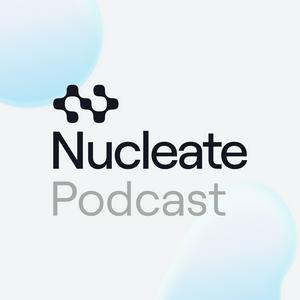
Get the free radio.net app
- Stations and podcasts to bookmark
- Stream via Wi-Fi or Bluetooth
- Supports Carplay & Android Auto
- Many other app features
Get the free radio.net app
- Stations and podcasts to bookmark
- Stream via Wi-Fi or Bluetooth
- Supports Carplay & Android Auto
- Many other app features


Nucleate Podcast
Scan code,
download the app,
start listening.
download the app,
start listening.





